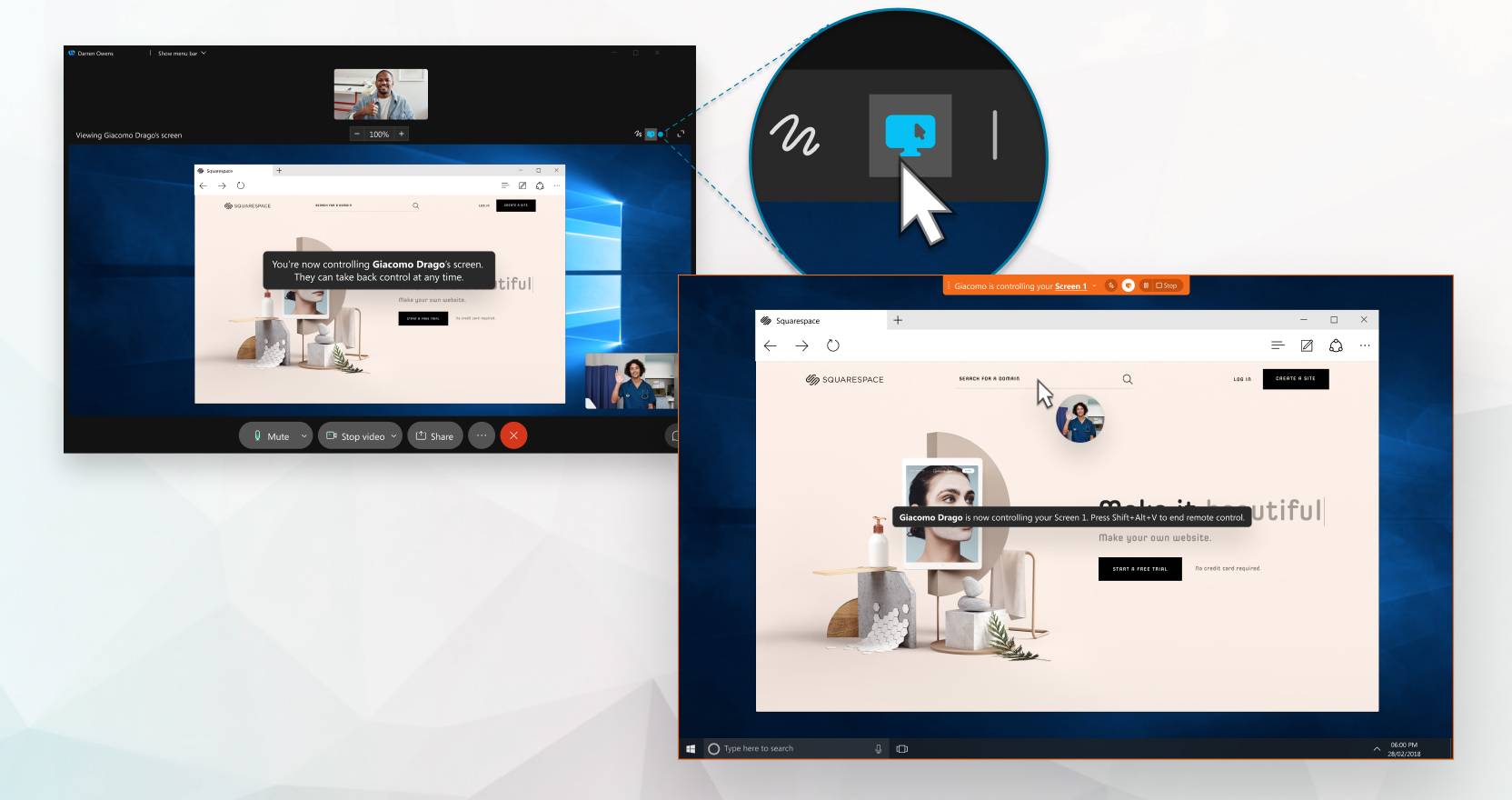Webex App | Provide or request remote desktop control
 Feedback?
Feedback?If you're using the Webex Suite meeting platform, you can give someone control when you're sharing all or an individual application window during a meeting, in a space, or in a call on Webex App. You can also request remote control of someone else's application when they're sharing.
When someone gives you remote desktop control, you can copy plain text from your local computer and paste it into the remote computer. Conversely, you can copy plain text from the remote computer and paste it into the local computer.

If you're in a call and don't see the option to Give control or Request control, it could mean you're not set up with Webex Calling or you're not in a Call on Webex. If you're not sure what calling service you have, see Webex App | Find Out What Calling Service You Have.
In meetings, this feature is available on our Webex Suite meeting platform. Find out if your meetings use the Webex Suite meeting platform.
If you're the host or cohost and prefer a controlled environment, turn off remote control to prevent attendees from requesting control of the presenter's shared content.
If you're using a Mac and your screen is going to be controlled, you need to allow Webex App to control your computer in the settings. That way, the mouse works during a remote desktop session.
Before you begin
You and another person must be using the desktop app and be in a share screen session already: during a call, during a meeting, or in a space with one other person.
You must disconnect from any devices Webex App is connected to.
You can’t annotate or use the whiteboard while someone is controlling your screen.
| 1 |
To give remote control of your Webex to a specific participant, do one of the following:
If the request isn’t answered in 30 seconds, a request needs to be made again. If more than one person is training you or helping you to resolve an IT issue, you can let them take control of your desktop without each person having to wait for you to provide access. Click . |
| 2 |
To end the remote screen session in a call or in a space, click End remote control. To end the remote screen session in a meeting, click Stop control. You or the other person can end the remote screen session. You can also click |
If you're using a Mac and your screen is going to be controlled, you need to allow Webex App to control your computer in the settings. That way, the mouse works during a remote desktop session.
Before you begin
You and another person must be using the desktop app and already be in a screen share session: during a call, during a meeting, or in a space with one other person.
You must disconnect from any devices Webex App is connected to.
| 1 |
When someone's sharing their screen in a call or in a space with one other person, click Request control When someone's sharing their screen or application in a meeting, click Request control In a meeting, you can also right-click on the shared content and click Request remote control. If the person accepts your request, you can then control their shared screen. Either side can control the mouse. If your request isn't answered in 30 seconds, you need to make the request again. You can’t annotate or use the whiteboard while you're controlling someone's screen. |
| 2 |
To end the remote screen session, click End remote control. To end the remote screen session in a meeting, click Stop control. You or the other person can end the remote screen session. You can also click |
If your local computer and the remote computer have different keyboard layouts, the characters you type on your local keyboard may not show up correctly on the remote computer.
Workaround: Try temporarily changing the keyboard layout on your local computer so it matches the keyboard layout of the remote computer.

 and then select the participant.
and then select the participant. to end the share screen session altogether.
to end the share screen session altogether.

